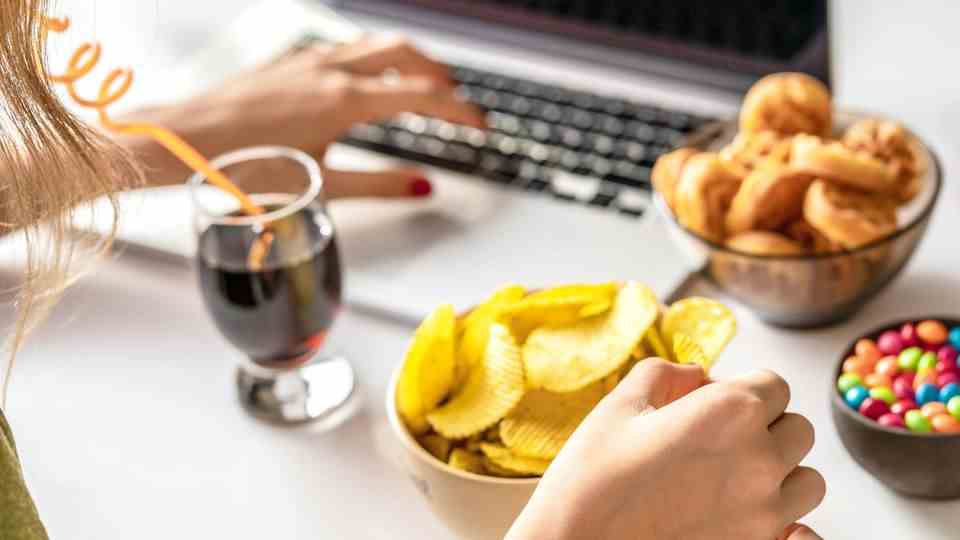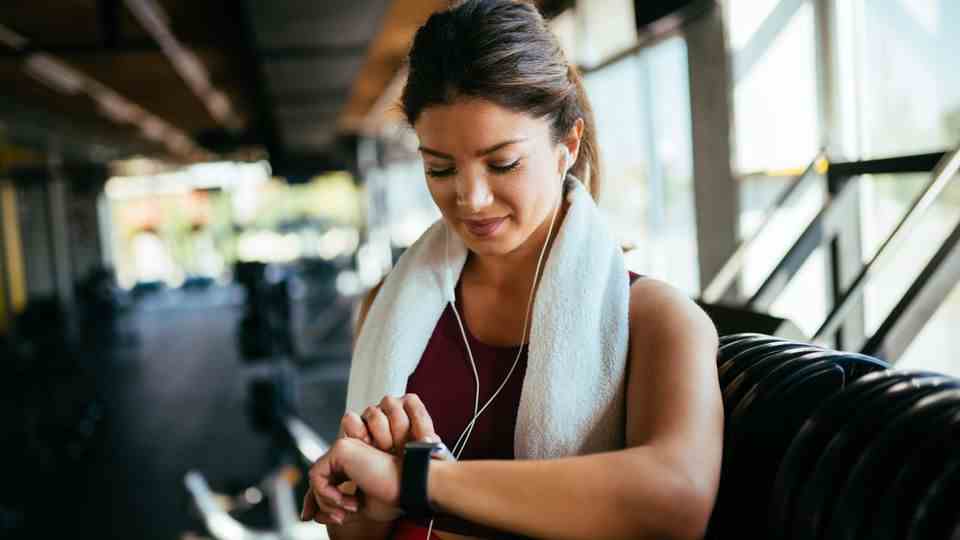survival reflex
Eating as an emotion manager: why so many people gained corona kilos during the pandemic
The home office tempts you to snack.
© monkeybusinessimages / Getty Images
Life in pandemic crisis mode is leaving its mark. While some forget to eat, others ate stubborn corona kilos. What the survival reflex has to do with the extra weight and why you should forgive yourself for the extra kilos.
In the past few months, some have stopped eating because of stress and grief, while others pinch their pants because they tried to relieve their grief with chocolate. What to do if your pants pinch but the pounds don’t want to go away? “Sometimes it’s two, sometimes 15 kilos. A lot of weight has been added overall,” says nutritionist Urte Brink. She is a member of the Oecotrophologie professional association and knows that this is just the tip of the iceberg. “Many have not yet devoted themselves to the topic, the big wave is yet to come,” she is convinced.
An updated study that the Robert Koch Institute plans to publish in March, according to a spokeswoman, could show how many kilos people in Germany have actually accumulated. A study in the “Journal of Health Monitoring” from the first year of the pandemic already indicated a trend towards more weight: The approximately 23,000 respondents nationwide aged 15 and over gained an average of 1.1 kilograms between April 2019 and September 2020. An online survey by the Technical University of Munich in April 2021 showed that around 40 percent of the participants had gained weight since the pandemic began. On average, it was 5.6 kilograms.
“It’s a survival reflex”
Nutritional psychologist Christoph Klotter from Fulda University understands that people are currently gaining weight. The corona pandemic is a fundamental crisis and poses a constant threat to the subconscious. “Historically, when we feel threatened, we eat more – for fear of starvation. It’s a survival reflex,” says Klotter. Particularly difficult for many: the pandemic-related work at home. The cake rounds with colleagues are no longer necessary, but so is the way to work and thus frequent exercise in everyday life. But now always nearby: refrigerator, stove and food supplies. It’s quicker to have a snack or grab a chocolate.
“Working from home means that I no longer see my colleagues. That’s a heavy blow, I’m trying to cope with it somehow,” explains Klotter. For some people, food is the emotion manager. The limbic system, one of the oldest brain regions, craves rewards unconditionally. And in an affluent society, food is the simplest form of reward. However, there are also people who lose their appetite in crisis situations, says Klotter. The latter reward themselves differently or are in a permanent stress mode. “Some forget to eat,” says Klotter.
Corona kilos: “You have to forgive yourself”
However, consultant Brink has also observed that some people now have many more opportunities to deal with losing weight: “People on short-time work, for example, have more time to go out and enjoy exercise or conscious cooking”. One of them is her client Sandra R. from Bergisches Land, who lost twelve kilograms in six months. “Thanks to the nutritional advice, I finally learned to turn the bad eating habits into better ones,” said the 51-year-old. In combination with numerous kilometers of cycling, gymnastics and aqua jogging, the pounds dropped quickly. She also learned not to give up immediately after minor setbacks, but to always think positively and act accordingly.
From Klotter’s point of view, it’s also important not to judge or devalue yourself for the extra kilos: “You have to forgive yourself and understand that we’re simply in crisis mode,” he says. He advises those affected to say to themselves: “Yes, that’s how it is at the moment and hopefully it will be over soon” and to see how they can regulate their feelings differently. “I recommend looking at the weekends to see how I can reward myself in the coming week. What calms my nerves if it’s not supposed to be the food?” says the psychologist.
For some people, the daily walk is a reward, for others it is relaxation training or just relaxing listening to music. It is also helpful to keep a diary and to document and reflect on eating habits: “In which situations do I go to the fridge?” Antje Gahl from the German Society for Nutrition has a tip that should help to only target the refrigerator: She advises preparing meals for the home office as they used to be prepared for the office and putting them in the refrigerator . The issue of obesity is not entirely new. In Germany, many people were already overweight before the pandemic. “The problem will continue to concern us after the pandemic,” says Gahl.



